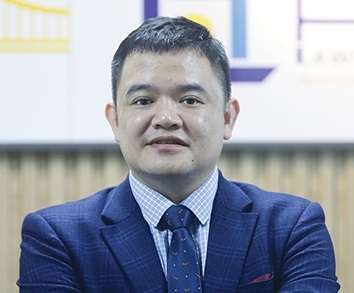The keys to M&A attraction
 |
| Pham Duy Khuong Managing director ASL LAW |
Besides, it is also one of the countries that have been able to control the COVID-19 epidemic, creating a safer environment for foreign investors. This encourages foreign investors to look for projects in Vietnam, especially in the real estate sector, to invest through M&A deals. However, investment policies and legal corridors need to be improved to attract investment and make M&A a safe option in Vietnam.
Firstly, despite implementing amendments to laws and issuing more open policies to attract investment capital to improve M&A activities, there are still many shortcomings that make investors afraid to invest in Vietnam in this form. The provisions of the regulations on M&A are scattered and overlapping in legal documents such as the laws on Enterprises, Investment, and Competition, and there are no unified regulations for the implementation of M&A activities.
In order to move towards the development of M&A activities, Vietnam needs to build a unified legal corridor for this activity, thereby creating peace of mind for investors with clearly outlined regulations on the management as well as the responsibilities and interests of stakeholders.
Secondly, some unclear provisions of the Law on Competition are considered a barrier to the implementation of M&A deals in Vietnam, especially the fact that there is no unified and clear definition and guidance on the term “related market”. This makes the decisions of local authorities very subjective, posing investors many potential risks. Therefore, it is necessary to have a document clarifying the definition of “relevant market”.
Thirdly, to conduct M&A activities, it is very important to identify potential target companies that meet the requirements and desires of investors. In the Vietnamese market, information is very limited on businesses, especially in the real estate sector.
Meanwhile, target companies often hide unflattering business information, debts, or disputes or lawsuits, putting investors at risk. Therefore, it is necessary to promulgate a policy to create a transparent information disclosure system as well as reliable tools for investors to collect information to avoid disadvantages when participating in M&A activities.
Finally, the procedure for approving M&A transactions in Vietnam is also quite cumbersome, as most transactions need to be approved by the competent authority. The approval process can take up to months, and even longer if the deal is related to a conditional business line where approval has to be secured from many different authorities. Therefore, cumbersome procedures need to be removed and reduced to facilitate foreign investors in Vietnam.
The COVID-19 pandemic has created many challenges and also created many opportunities for the Vietnamese economy. If the above problems are solved, Vietnam is expected to have a breakthrough after its economy recovers.
What the stars mean:
★ Poor ★ ★ Promising ★★★ Good ★★★★ Very good ★★★★★ Exceptional
Related Contents
Latest News
More News
- Balance to find with overtime reform (March 24, 2022 | 11:33)
- ASL Law managing director among top 100 lawyers in Vietnam (March 12, 2022 | 15:42)
- The role of RCEP in economic recovery of the region (February 17, 2022 | 10:22)
- Supporting policies in Vietnam’s social insurance (September 27, 2021 | 17:12)
- PPP law builds on transparency and proper process (August 02, 2021 | 20:30)
- ASL Law introduces Legal Handbook amid COVID-19 times (July 17, 2021 | 09:47)
- Directions for FIEs and employees in benefits disputes (June 03, 2021 | 22:07)
- Building regulations to secure workers’ rights and interests (April 05, 2021 | 14:27)
- Managing partner of ASL Law Firm ranked top 100 lawyers in Vietnam (March 09, 2021 | 10:34)
- Ramifications of prosecution for counterfeit actions (January 26, 2021 | 16:33)

 Tag:
Tag:




















 Mobile Version
Mobile Version